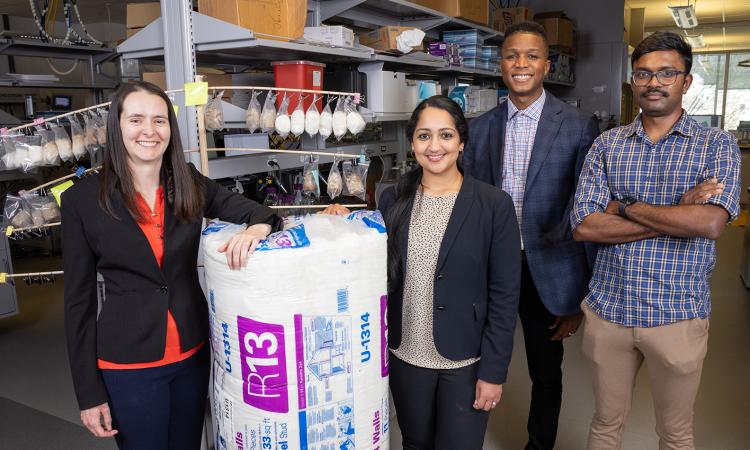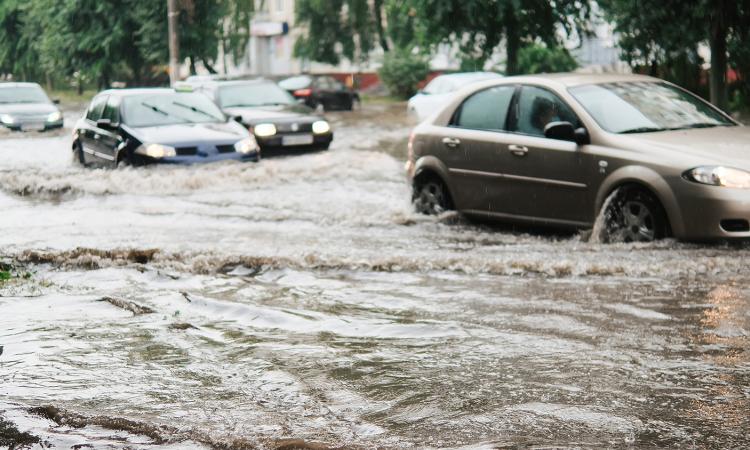A century-long analysis of publication data looks at the gender dynamics in a field that combines male- and female-dominated focus areas.
(text and background only visible when logged in)
A study led by a Georgia Tech researcher analyzing more than a century of climate science publications has found that women in the field are just as productive and successful as their male peers. However, they tend to have shorter careers and therefore fewer total publications.
According to the study, women are 90% as likely as men to maintain their careers.
The research offers one of the deepest looks at publications and gender dynamics in climate science. The field is unique because it blends male-dominated areas of study — geosciences and engineering — with those that are majority-women, including sociology, public health, and life sciences.
The study examined more than 400,000 publications between 1903 and 2018. The findings, which don’t include topics such as salaries, number of women in the field, or tenure rates, are published in the journal Proceedings of the National Academy of Sciences (PNAS).
The study found that when it comes to overall and first-author publications, there were only small differences between the average for men and women. This indicates that the overall distributions of men and women were nearly identical. In fact, the researchers said, that if a man and a woman were randomly picked from the pool, there is a good chance (just slightly less than 50%) that the woman would have more publications than the mean.
The researchers also found little evidence of peer review biases: Articles authored by women were accepted at similar rates in prestigious journals like Science and Nature.
“However, despite these similar success metrics, women tend to stop their publishing activity earlier than men. This results in fewer total publications over time,” said Chris Martin, the study’s lead author and director of collaborative innovation in Georgia Tech’s School of Civil and Environmental Engineering.
“This shorter career spans suggest that systemic factors may still be pushing women out of the field earlier than men,” Martin said. “Factors such as work-life balance, family responsibilities, and institutional pressures may contribute to the higher dropout rates.”
The researchers call for continued efforts to support career longevity for women in science, including flexible work policies, better childcare, and more generous maternity leave. They also say there should be no career penalties for women who choose to have children relatively early in their careers.
“Overall, these results suggest that women climate scientists are as productive and successful as men,” Martin said. “This is important because portraying fields as male-dominated can deter women from those fields. The overall parity implies that talented women are empowered during their climate science careers.”

CEE's Chris Martin led the study.
About the Research
Citation: Martin, C., Lockley, A., Hendricks, S., Clark, C., Mundra, I., Matzner, N. Women climate scientists are connected, productive, and successful but have shorter careers. Proceedings of the National Academy of Sciences (Vol 122, 2025). https://doi.org/10.1073/pnas.2506023122

Preeminence in Research
Related Content

Using Hemp in Building Insulation Could Make Structures Greener, Create Jobs, and Be a Profitable Industry
CEE researchers’ analysis outlines path to a U.S. construction market for hemp-based fibers, which are already used for clothing and biodegradable plastics.
CEE researchers’ analysis outlines path to a U.S. construction market for hemp-based fibers, which are already used for clothing and biodegradable plastics.

Unearthing Climate Solutions
CEE’s Susan Burns is among the Georgia Tech researchers turning over every rock as they explore how to improve the planet.
CEE’s Susan Burns is among the Georgia Tech researchers turning over every rock as they explore how to improve the planet.

Taming the Flood
Civil engineer Iris Tien is helping coastal communities improve their resilience with the right flood-control infrastructure in the right places.
Civil engineer Iris Tien is helping coastal communities improve their resilience with the right flood-control infrastructure in the right places.